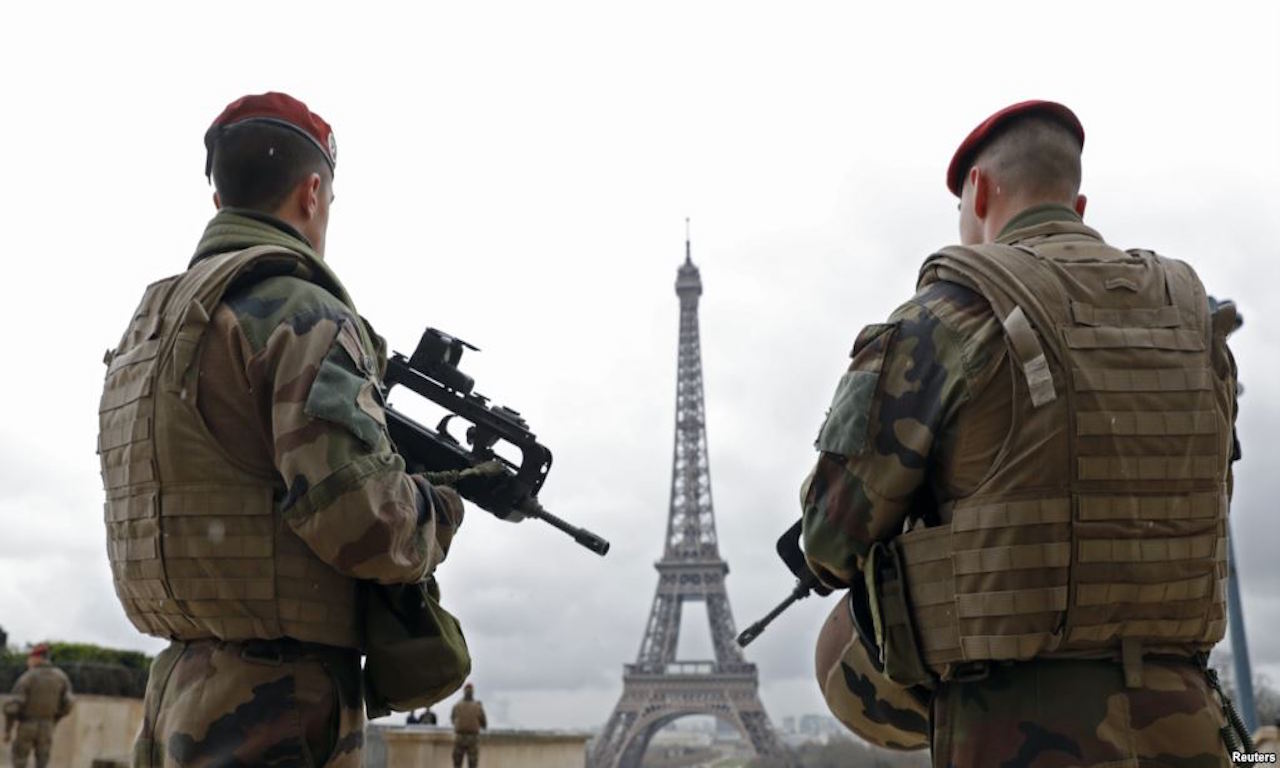The death of the Islamic State leader, Abu Bakr al-Baghdadi, was met this week with no outpouring of joy or even relief in France, even though this is the European country that suffered most from his depredations.
The reason is simple: the Islamic State’s crimes, and the fear they instilled in the national psyche, are so ingrained in France that the daily fabric of life has been inexorably altered.
As if proof were needed, within the last month, a former far-right candidate shot two Muslims who stopped him from burning down a mosque. A Muslim mother was reprimanded by an official for wearing a head scarf. And President Emmanuel Macron called for a “society of vigilance” after a Muslim employee at Police Headquarters in Paris killed four officers in a knife attack.
These recent symptoms of what some call an ongoing trauma for France demonstrate why Mr. al-Baghdadi’s death was ‘‘no more than a step,” as Mr. Macron put it Sunday in a muted reaction to the news.
The demise of the terrorist leader did nothing to heal the wound that the Islamic State opened in French society with the terrorist attacks of 2015 and 2016. Every day, in the persistent mutual fear and suspicion that exists between France and its large, imperfectly integrated Muslim minority, the wound festers.
In a survey published Sunday by IFOP, a respected polling firm, in the Journal du Dimanche, 61 percent of respondents said that Islam was “incompatible with the values of French society,” an increase of 8 percent over February. Nearly 80 percent said they felt that the vaunted French creed of secularism was “in danger,” largely because of Islam.
The wound existed well before the Islamic State attacks of November 2015 at the Bataclan and elsewhere in Paris. But the massacres perpetrated by al-Baghdadi’s foot soldiers — roughly 1,700 French citizens joined the Islamic State, of whom perhaps 700 were fighters — exacerbated the split between France and its Muslims.
The massacres also amplified the scope of judicial and police control over French society, and created a far more receptive climate for tough police repression. That was evident in this year’s gloves-off handling of the Yellow Vest protesters, which was largely accepted by the French despite thousands of wounded.
There is dispute in France about the extent of the civil liberties rollback since the terrorist attacks. A prominent constitutional lawyer and sometime-adviser to Mr. Macron, François Sureau, published a much-discussed pamphlet last month in which he lamented the “crumbling of the legal edifice of liberties” in France, partly because of 2015. Other experts call this an exaggeration.
But there is no doubt that the mood has remained tense since Mr. al-Baghdadi unleashed his agents on France four years ago. There are few calls for the state to lighten its grip. The attack of November 2015, in which 131 died, changed France, and the country’s leaders have benefited from popular recognition that new circumstances required new methods.
“It’s clear that it had an extremely powerful traumatic effect, which has inserted itself into the debate associated with Islam in France,” said Zaki Laïdi, a political scientist at the Paris Institute of Political Studies, known as Sciences Po, who was an adviser to France’s then-prime minister, Manuel Valls, at the time of the attacks.
Another adviser to Mr. Valls at the time, Chloe Morin, now at the IPSOS polling firm, said, “There’s a diminished tolerance toward Muslims now.”
But the attacks only exacerbated an already troubled relationship between France and its Muslim population, nearly all agree.
“The attacks heightened this climate of fear regarding Islam,” said Tareq Oubrou, an imam in Bordeaux who is a leading proponent of a reformist strain of Islam. “The ordinary citizen makes no distinction between terrorism, Islamism and sectarianism,” he said.
The existing difficulties, pre-2015, between France and French Muslims were “considerably amplified by the wound that France suffered, of course,” said Mr. Laïdi.
“It was a massive shock, this huge eruption of the Islamist presence,” he said.
In the prime minister’s office, “they said to themselves, ‘How will the country manage this shock?’” Ms. Morin recalled.
The government they both served quickly imposed a state of emergency. It survives in part to this day, codified permanently in French law by Mr. Macron — the very measures deplored by civil libertarian jurists like Mr. Sureau.
The most notable of these measures allow for expanded and renewable house arrests of persons under suspicion, searches without judicial warrant, and the imposition of electronic bracelets. Mr. Sureau, in his pamphlet, wrote that “the state of emergency was 6,000 searches for 40 arrests, of which 20 were for excusing terrorism.”
But there was little sustained opposition to the new measures, either when they were first imposed or later enacted into law.
Mr. Laïdi observed that “the immense majority of French don’t feel that their civil liberties are threatened” — and the evidence for that is the stillborn debate over the harshness of police tactics in response to the violent Yellow Vest demonstrations. Scattered protests led to nothing.
Mr. Sureau, the lawyer, himself won several important appeals of emergency measures at France’s Constitutional Council, the equivalent of the Supreme Court, including one that criminalized looking at “terrorist” websites — proving, in the eyes of his critics, that civil liberties in the country are in good shape.
“Historically, the French demand protection from the state,” said Mr. Laïdi. “The attacks only reinforced that expectation.”
Yet the muted reactions in France to two recent policy balloons floated by Mr. Macron show that despite the attacks of 2015, the French are not ready to tighten the screws further and become a full-bore national security state.
Redazione
La redazione di Babilon è composta da giovani giornalisti, analisti e ricercatori attenti alle dinamiche mondiali. Il nostro obiettivo è rendere più comprensibile la geopolitica a tutti i tipi di lettori.
Dall’origine straniera all’icona americana: il fenomeno dello sport negli Usa
14 Mar 2024
Molti sport americani sono accomunati da un aspetto particolarmente curioso: raramente sono davvero nati sul suolo…
Roulette europea, francese o americana? Ecco un approfondimento
22 Set 2023
La roulette è un classico intramontabile dei casinò, amata da milioni di appassionati in tutto il mondo. Una delle…
Conto corrente online: perché è la soluzione migliore per i più giovani
21 Ott 2022
I millennial e i nativi digitali hanno dimostrato di essere una forza in grado di cambiare le carte in tavola nel…
L’intrattenimento online è dei casinò
31 Ago 2022
Il mondo dell’intrattenimento è vasto e ricco di opzioni. Con l’avvento di internet, poi, il settore non fatto altro…




